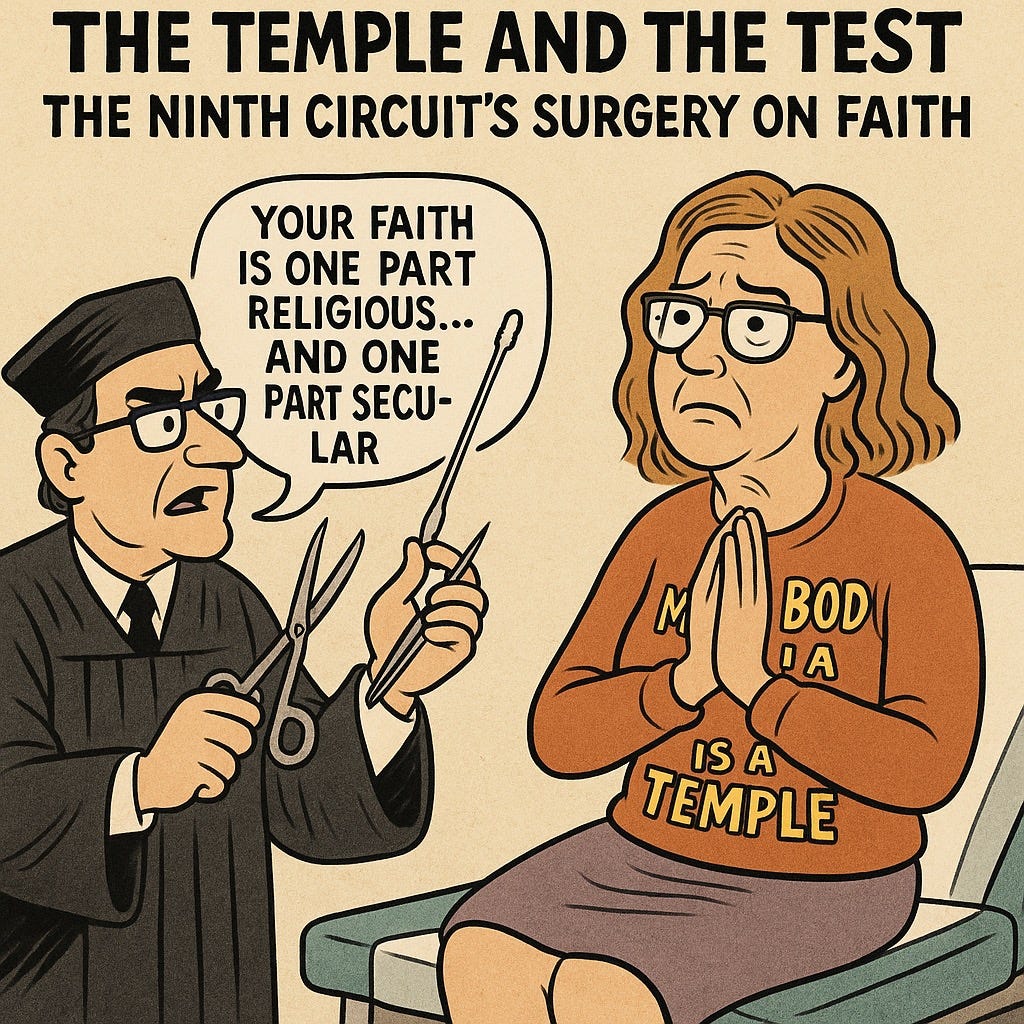September 23, 2025. Portland, Oregon. The courthouse reeked of bureaucracy and Lysol, like a mausoleum for ideas. Three judges sat high above the wreckage of a pandemic America, staring down at the case of Sherry Detwiler who was once a privacy officer at Mid-Columbia Medical Center, now a casualty in the war between conscience and compliance.
She had drawn a line in the sand. No vaccine, she said, because her body was the temple of the Holy Spirit. The hospital bought it. She prayed, she cited scripture, she got the exemption. For a moment, she had beaten the mandate.
But the nose swabs came next. Weekly antigen testing with sticks sterilized in ethylene oxide. She read the research and saw danger everywhere. Carcinogen. Mutagen. DNA corrosion. She prayed again. The Holy Spirit said no. To her, it was one seamless belief — faith and science fused together into a single, flashing warning.
The hospital called it nonsense. Saliva tests were too slow. Remote work too messy. By December 20, 2021, she was fired.
Then came the lawsuit. Title VII. Oregon law. A demand for recognition that her refusal was religious. And the Ninth Circuit said: not so fast.
Judge Richard Seeborg split her mind open like a lab specimen. He acknowledged the religious half — the temple of the Holy Spirit. That was genuine. But the other half, the terror of ethylene oxide, that was secular. Personal. Nothing holy about it. “Premised on her interpretation of medical research,” he wrote. The court severed her brain into two piles, tossed the secular stack in the trash, and declared the claim dead.
Judge Lawrence VanDyke dissented. He said the majority had gone too far, trying to parse belief like philosophers with scalpels. Faith is messy. Science and scripture bleed into each other. Detwiler’s prayer and her Bible were enough to make the whole thing religious. But his was the losing voice.
Detwiler v. Mid-Columbia Medical Center, No. 23-3710 (9th Cir. Sept. 23, 2025)
